Early revelations from researching literature in radical bookshops

Through a teal door plastered with flyers and pamphlets on West Nicholson Street is Lighthouse Bookshop. It creeps up on me a little suddenly, I don’t expect it to just come up to my right, so I cross the road to look at it from the pavement on the opposite side for a moment. It is comfortable in its niche. I can see the University of Edinburgh buildings out of the corner of my eye as I lean against the wall of a bar with a massive digitised ‘Aperol Spritz’ sign (yes, like an overpriced something you would buy on an airline).
I fail to look at any bookshop, more so an independently run one, in its presence at that very moment. Books do a wonderful job of loosening up the tight coils of time that swirl around the world framing them, and this appeals to me very much. If I were to make a drawing of the bookshop, I’d illustrate its background as an illusory abstract inspired by the rabbit hole that took Alice to Wonderland, the site of her freefall, and simultaneously the act of it too, the temporal world as we know it is just an accessory to a concentration of books anywhere. ‘Fieldwork’ is a useful moniker for this activity, somewhat akin to lurking around an online forum or groupchat.
My research is titled, ‘Reading the Root Words: Literature in Radical Bookshops’, and this is a (mouthful! but also) bit of a minefield for the contentious ground it covers. The word ‘radical’ assumes a diverse and variable contextual history, as do establishments like ‘radical bookshops’, which used to be allied across the United Kingdom under the Federation of Radical Booksellers (FRB), that enjoyed its heyday in the 1970s-80s and into the 90s, still a while before online spaces and communities spilled into the mix. In constructing themselves around the readership of their local communities, these establishments revised what it means for information to flow across a demographic - arguably the most definitive factor in mobilisation. At times, saying all these words out loud over and over makes them feel rubbery and meaningless - a random assortment of sounds contorted out of my lips, but walking into Lighthouse swiftly recenters the focus and reminds me I’m on the right juice.
It is a compact, comfortable space, with rows of bookshelves covering the walls, hand-written labels marking out their organisation, and staff recommendations pointed out in some aisles. Low chairs wait unassumingly in nooks and corners for anyone that might like to sit and peruse awhile, and in my thorough survey of the bookshop, I gravitate towards the children’s literature section. It is placed in the middle of the adjoining room, directly facing queer sexual fiction, and at that momentous second, bridged by the body of me. A distinct and organic radicalness is produced in careful, suggestive organizational details. To draw a body in, or to allow it the agency of wandering in (as mine was between these sections), is to introduce it to knowledge in a new medium, allow it the fundamental willingness to care for something by way of knowing or looking at it. Bookshops of any kind house knowledge, but just as bunching the Penguin Classics together under non-fiction can build an aisle of classics in our minds, letting children’s literature and queer s(mut)exual fiction be neighbours would help dismantle it ever so gently and essentially. Academic jargon would probably call this ‘positionality’. My face is fraught with realisations as I flip through a copy of ‘Little People, Big Dreams’, as much as it is when I turn around. We learn what we don’t know just as easily as we realise what we need to know.
The person at the till peeked out from behind a rising metropolis of books and told me to check out the website, along with some more information about the book I wanted to get, and I daresay it felt less like a sale and more like an exchange. A bookshop is a good map for little (‘little’) acts of radicalism, or the lack of them at times. Maybe you will think about this the next time you visit one?

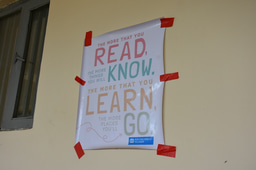
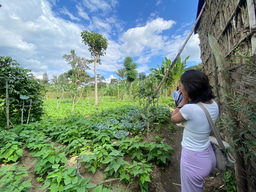
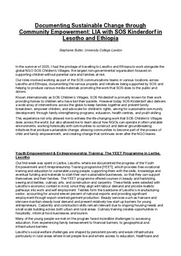
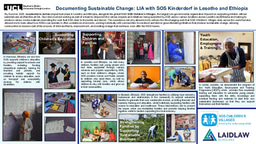
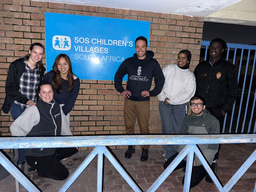
Please sign in
If you are a registered user on Laidlaw Scholars Network, please sign in
suchhh a cool project, and fascinating to see it from your eyes (and of course, through the eyes of a brilliant writer). so excited to hear more as you keep working!!!
Lighthouse Books is one of my favourite bookshops in the world. I can't wait to read more about your journey, Risha!!